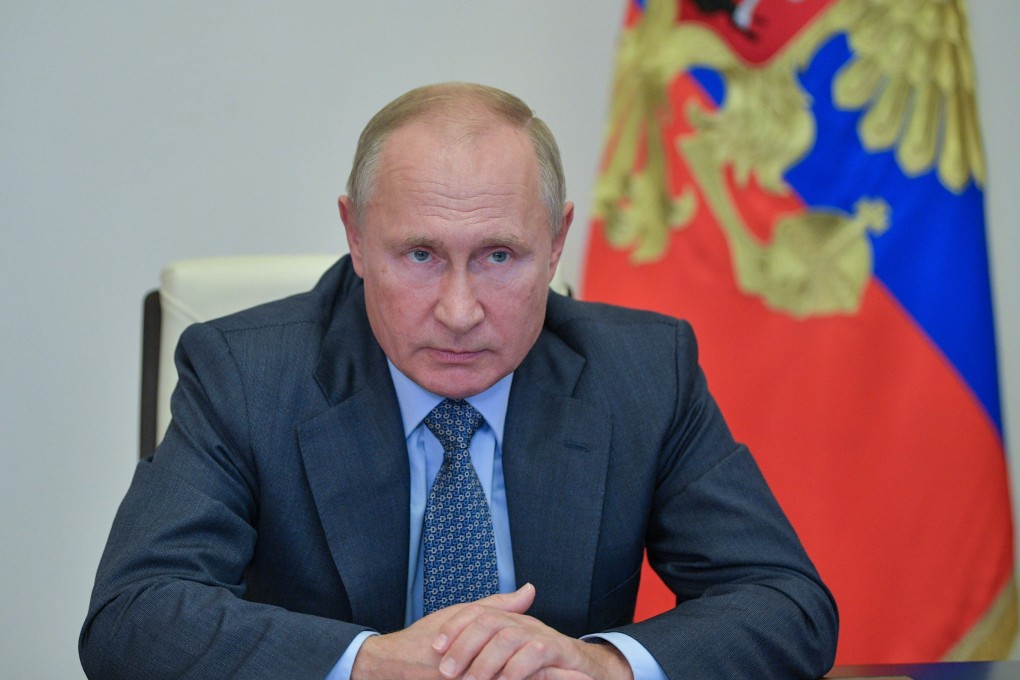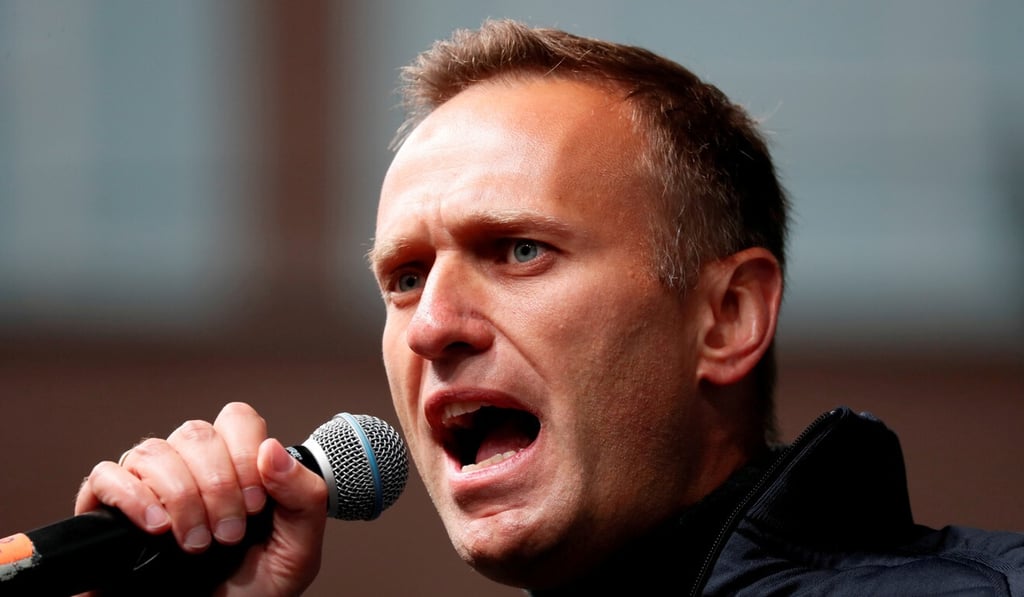Advertisement
Members of Vladimir Putin’s inner circle sanctioned by EU over Alexei Navalny poisoning
- Measures include asset freezes and travel bans on six individuals, including the head of Russia’s FSB domestic spy agency
- In addition, sanctions have been imposed on Yevgeny Prigozhin for undermining peace in Libya by supporting mercenary activities
Reading Time:3 minutes
Why you can trust SCMP

The British government on Thursday announced it would apply EU sanctions on senior Russians over the poisoning of opposition figure Alexei Navalny and meddling in the civil war in Libya.
These include asset freezes and travel bans on six individuals, including the head of Russia’s FSB domestic spy agency, over the attempt to murder Navalny using the Novichok nerve agent.
“The UK and its partners have agreed that there is no plausible explanation for Mr Navalny’s poisoning, other than Russian involvement and responsibility,” the Foreign Ministry said in a statement.
Advertisement
London has demanded a full investigation into the poisoning and said Russia must declare its Novichok programme to the UN’s Organisation for the Prohibition of Chemical Weapons (OPCW).

Advertisement
“The sanctions, which are now in force, send a strong signal that there are consequences for the use of chemical weapons and the threat their use poses to the rules-based international system, designed to keep us all safe,” the ministry said.
Advertisement
Select Voice
Select Speed
1.00x